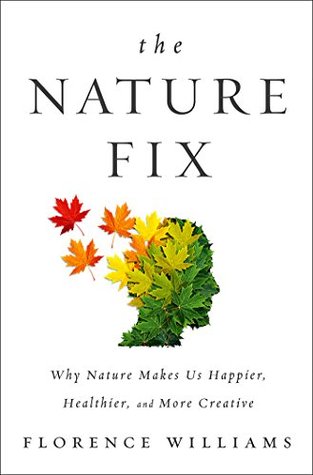More on this book
Community
Kindle Notes & Highlights
Read between
September 7, 2018 - January 14, 2019
As Nisbet rather dejectedly concluded, “People may avoid nearby nature because a chronic disconnection from nature causes them to underestimate its hedonic benefits.”
We don’t experience natural environments enough to realize how restored they can make us feel, nor are we aware that studies also show they make us healthier, more creative, more empathetic and more apt to engage with the world and with each other. Nature, it turns out, is good for civilization.
“What’s the Japanese word for ‘stress’?” I asked. “‘Stress,’” he said.
One in four middle-aged American women takes or has taken an antidepressant. One in fourteen children takes a drug for emotional or behavioral problems, reflecting about a fivefold increase since 1994.
“biophilia”; that honor goes to social psychologist Erich Fromm, who described it in 1973 as “the passionate love of life and of all that is alive; it is the wish to further growth, whether in a person, a plant, an idea or a social group.”
“If you have time for vacation, don’t go to a city. Go to a natural area. Try to go one weekend a month. Visit a park at least once a week. Gardening is good. On urban walks, try to walk under trees, not across fields. Go to a quiet place. Near water is also good.”
Buddha, Jesus, and Reese Witherspoon all went to the desert to seek wisdom.
Perhaps what matters is not the source of the stress but the ability to recover from it.
According to the U.S. National Park Service, 83 percent of the land in the lower forty-eight states sits within 3,500 feet of a road, close enough to hear vehicles.
As to the perennial question of whether a tree falling in the forest makes a sound if no one is there to hear it (first posed by Irish philosopher George Berkeley), the answer is technically no. There is no sound apart from a sentient brain’s interpretation of molecules vibrating through air or water. The brain turns those molecules hitting the eardrums and pinnae into a mental idea of sound. Birds will hear the toppling tree, and fish will hear it too. But there is no thing called sound unless the vibrating molecules are processed into pitch.
When we walk, we naturally go to the fields and woods: what would become of us, if we walked only in a garden or a mall? — HENRY DAVID THOREAU
Walking was a philosophical act, facilitating a direct experience with divinity. It was a political act, mixing the educated classes up with the poor (who had always walked, doh). And it was an intellectual act, generating ideas and art. The ramblers of yore embraced a kind of radical common sense.
One of the underappreciated benefits of venturing into remote landscapes is that we are often thrown into connecting with each other.
Edmund Burke had it right, feelings of spirituality don’t just spring from religion: they also spring from transcendent experiences in nature.
Distilling what I learned, I came up with a kind of ultrasimple coda: Go outside, often, sometimes in wild places. Bring friends or not. Breathe.
Minneapolis ranked first (no wonder they’re so happy there!), with 86.5 percent success. I was surprised to see Washington, D.C., ranked third, at 80 percent, if you include public lawns like the National Mall.


